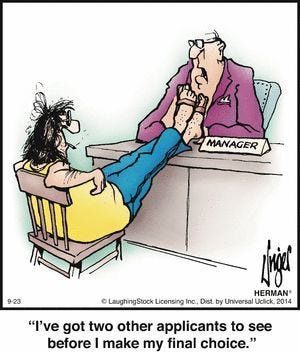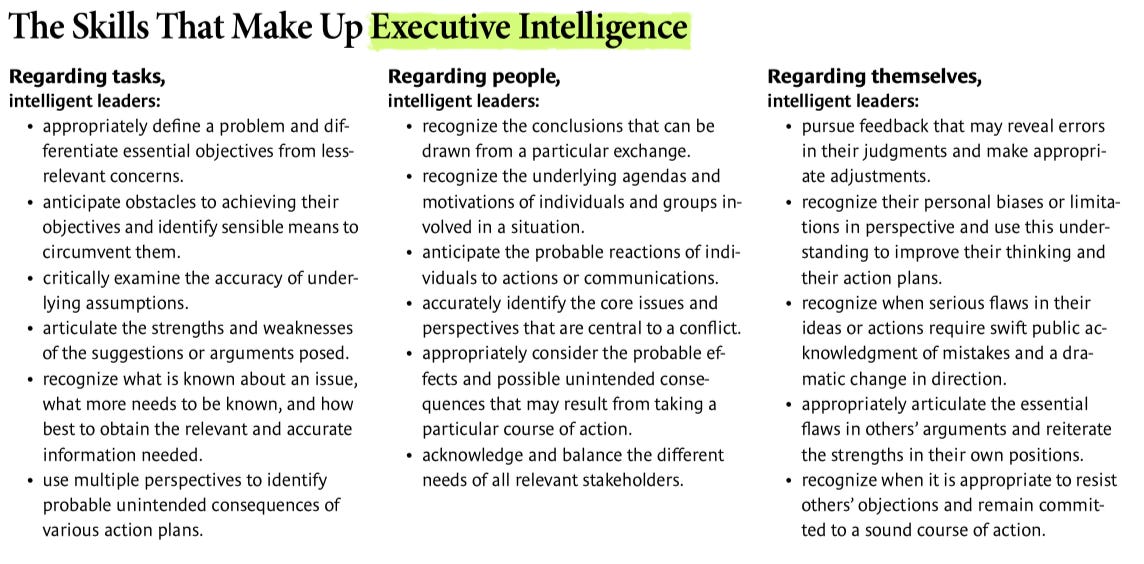What ought a school of business teach? Schools of business teach how business is conducted at present. In other words, they teach perpetuation of the present style of management. They teach perpetuation of our decline.
A school of business has an obligation to prepare students to lead the transformation, to halt our decline and turn it upward. They ought to teach the theory of a system and the theory of profound knowledge for transformation. They ought to teach the damage, unmeasurable, that comes from:
The evils of short-term thinking
Ranking people, teams, plants, divisions, with reward at the top, punishment at the bottom. The evils of the merit system
Losses from management by results, tampering
Demoralization and losses from incentive pay and from pay for performance (for the simple reason that performance cannot be measured)
Profound knowledge tells us why these practices cause loss and damage to people.
Students in a school of business should study also, of course, economics, statistical theory, some language (at least two years), some science (at least two years).
Deming, Dr. W.E. The New Economics, 3rd ed. (p. 99)
Theory of management now exists. There is now a theory of management for improvement of quality, productivity, and competitive position. No one can ever again claim that there is nothing in management to teach. Students in a school of business now have a yardstick by which to judge the curriculum that is open to them. Does the school show some attempt to present a curriculum for today’s problems, or does it show obsolescence? Obsolescence need not be planned: it can just move in.
Experience alone, without theory, teaches management nothing about what to do to improve quality and competitive position, nor how to do it. If experience alone would be a teacher, then one may well ask why are we in this predicament? Experience will answer a question, and a question comes from theory. The theory in hand need not be elaborate. It may be only a hunch, or a statement of principles. It may turn out to be a wrong hunch. Management that faces seriously the following questions will perceive the need of an overall integrated plan.
1. Where do you hope to be five years from now?
2. How may you reach this goal? By what method?Deming, Dr. W.E. Out of the Crisis (MIT Press) (p. 19).
Management must know these things. There is no excuse for ignorance, but there is a penalty for ignorance and we all pay it.
Deming, Dr. W.E. as referenced in David Langford - Why Deming in Education (1:25:43).
THE AIM for today’s post is to consider the question of whether effective leadership is an innate, immutable cognitive ability that some have and others do not, or if it can acquired by learning new, transformative theory as viewed through a Deming lens. I was prompted to think about this after reading an old 2005 HBR article, Hiring for Smarts, by Justin Menkes that describes how organizations can hire better calibre leadership and managerial talent by assessing for “the cognitive abilities that allow a person to consistently reach the ‘right’ answer” using methods similar to those for determining IQ. He calls these abilities “executive intelligence”, and they are, according to his research, rare traits that determine an individual’s capacity for “critical thinking” (not unlike IQ) that can’t be taught or learned in business school:
Lucent Technologies CEO Patricia Russo, who has led the company’s turnaround, described this ability to me as “clarity of thought.” The people who have it are rare, she said, but if you get a team of clear thinkers, “the possibilities are endless.” Avon CEO Andrea Jung made a similar observation: “Clear thinking in senior leadership is a primary attribute we look for. I’ve seen little correlation between those who have a formal business education and those who possess clear thinking.…Some people have a knack for this, some don’t.”
According to Menkes, Executive Intelligence is defined by a unique set of aptitudes and skills top leaders must be able to demonstrate broadly categorized into three subject areas: accomplishing tasks, working with and through others, and judging oneself and adapting one’s behaviour accordingly (see Fig. 1 below). In total, and according to his research, they “determine how well someone gathers, processes, and applies information in order to identify the best way to reach a particular goal or navigate a complex situation… these are the skills that allow someone to achieve the highest level of critical thinking in the workplace”.
Menkes goes on to elaborate how he validated the capacity of these skills to predict for top candidates by testing them against real-world executive performance finding that while many leaders may have a strong showing in one or two of the categories, “stars showed exceptional ability in all three”. In support he provides examples of good and bad leadership drawn from pivotal leadership decisions of CEOs when faced with a defining challenge.
He then designed unique interview questions to measure for these skills that would present candidates with novel situations outside of their past experiences that required them to demonstrate their cognitive abilities. For example:
You are the CEO of a large software company. Your prices are being severely undercut by both domestic and foreign competitors. Your executive team recognizes a desperate need to cut costs. Your COO concludes that the answer is to outsource most of the company’s programming to foreign subcontractors, thereby reducing labor costs. In fact, your COO has already received a number of bids from service firms in both India and South Korea. What questions do you have about his proposal? (p.8)
After administering hundreds of tests with questions like this in over 18 countries, Menkes claimed that his method, while no silver bullet, could predict 25%-30% of variance in performance between candidates irrespective of race, gender, or language proficiency.
Gaining Clarity through Profound Knowledge
What would Dr. Deming make of Menkes’ model and conclusions? I think he would have some points of agreement, some shared interest and curiosity, and some characteristic sharp rebukes.
On the overall topic, Deming would likely be interested in Menkes’ work designing an experiment to test a hypothesis and how he applied statistical sampling theory to analyze the findings of his enumerative study. As a curious and lifelong learner who was always prepared to unapologetically adjust his thinking and theory to accommodate new understanding and knowledge, he would likely be interested in Menkes’ discovery of key aptitudes and skills given how well they could fit into and overlap the domains of his System of Profound Knowledge, such as the ability to predict outcomes and reactions with theory and acknowledging the role of psychology in understanding how to lead a system. He’d also be quite in agreement that this knowledge was indeed uncommon and as noted above, not taught in many business schools, if at all.
However, I imagine Dr. Deming would question the soundness of Menkes’ theory that clarity of thought for management was an innate knack. He might agree with him that some may excel at learning and applying new theory than others, but attribute that to variation in people. While he’d likely find the method of interviewing for key skills interesting from the vantage point of psychology, he’d caution using it to rate and rank candidates with the expectation it would predict outcomes due to it not taking into account the role of the system in their success. Moreover, while he would agree that top-management is most responsible for improvement, he would challenge the notion that it begins and ends with hiring-in rather than through transformation of all leadership through sustained learning of “outside” knowledge. In short, he’d see Menkes’ work as interesting but ultimately a retrenching of the prevailing style of management because it leaves it virtually untouched and unquestioned.
Reflection Questions
What do you think about Menkes’ work on Executive Intelligence? In your view, are good leaders born or can the ability of “clear thinking” be taught and understood by anyone? What similarities or differences do you see between Menkes’ identification of skills and traits and Deming’s theory of leadership? Could a Deming-led transformation be accomplished by hiring-in top management who unwittingly possessed the ability to perceive the organization through the lenses of the System of Profound Knowledge? Would not understanding this matter, or would it be enhanced? How would future generations of leaders learn the skills that Menkes’ method prizes?



